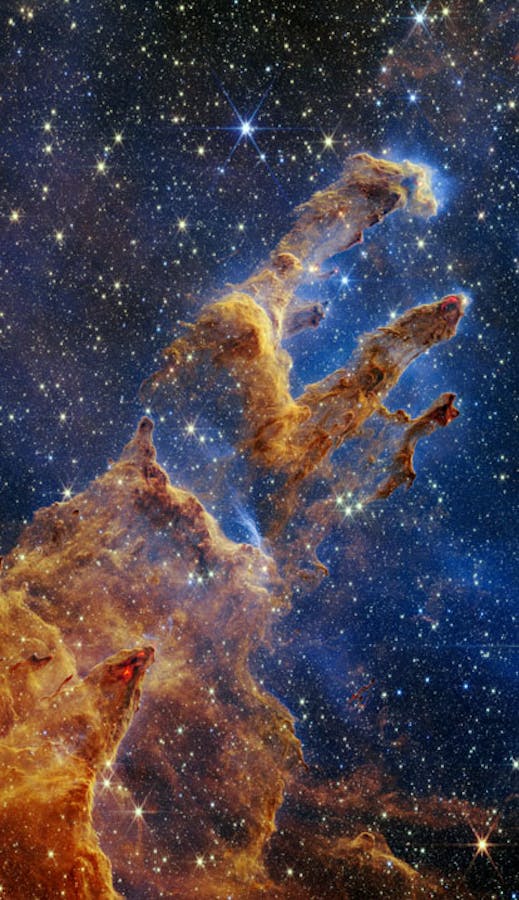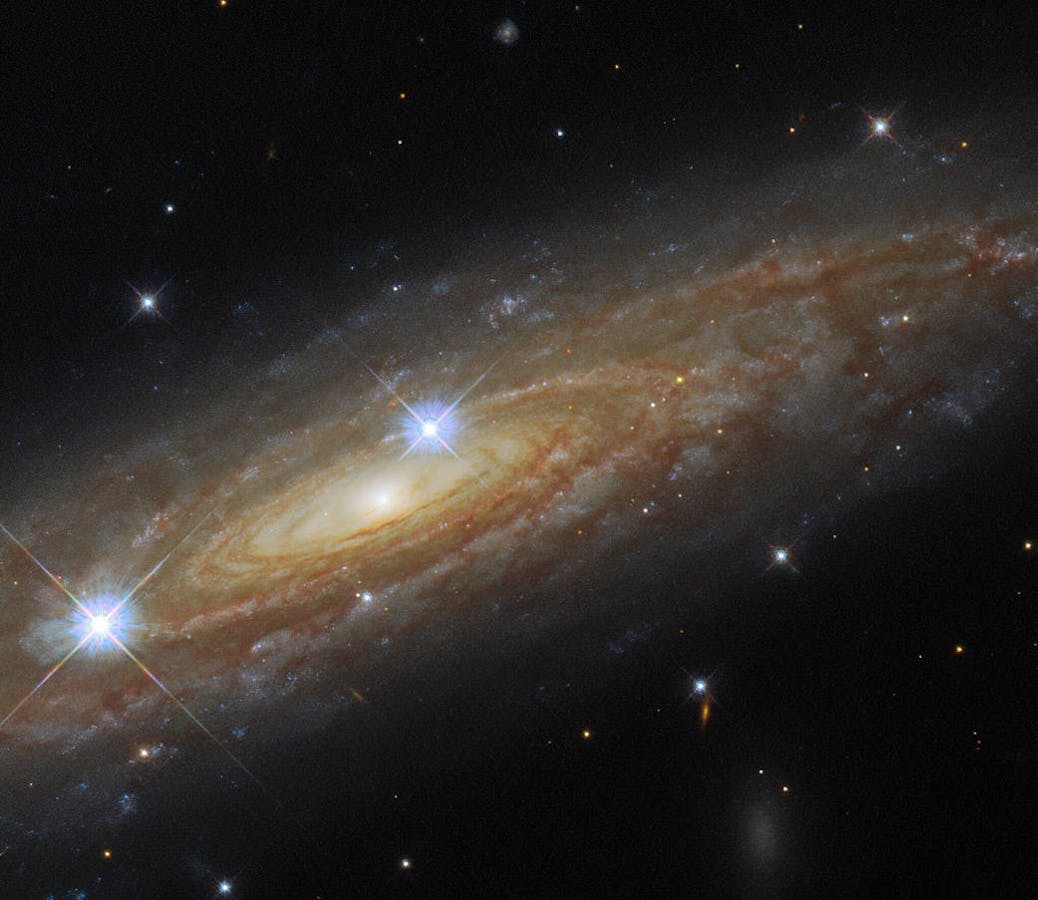Why does the universe exist in such a way that life can arise?
The human body is made up of the same fundamental elements and governed by the same fundamental forces as the stars and planets. The constants of nature are as much behind our DNA as the largest structures of the cosmos.
Just as modern discoveries have revealed fine-tuning on the cosmic scale, some scientists argue that the universe was configured for life, and in particular human life, to exist.
“The more I examine the universe and the details of its architecture, the more evidence I find that the universe in some sense must have known we were coming.”
Freeman Dyson, The Argument from Design, 1979

Columns of semi-transparent gas and dust known as the Pillars of Creation stretch across a backdrop of space. Here, young stars form. Scientists estimate these are a few hundred thousand years old.
SCIENCE: NASA, ESA, CSA, STScI
IMAGE PROCESSING: Joseph DePasquale (STScI), Anton M. Koekemoer (STScI), Alyssa Pagan (STScI)
Is there anything unique about our planet and its place in the universe?
The Milky Way is one of billions of galaxies, each containing billions of stars. Recent discoveries of thousands of exoplanets have offered a new perspective on Earth’s place in the universe.
While some scientists argue Earth is not unique, others argue that life on our planet has benefited from a unique set of factors. From its position in the galaxy to its chemical composition, to even our ability to do science, for them our planet appears to be an especially hospitable place.










